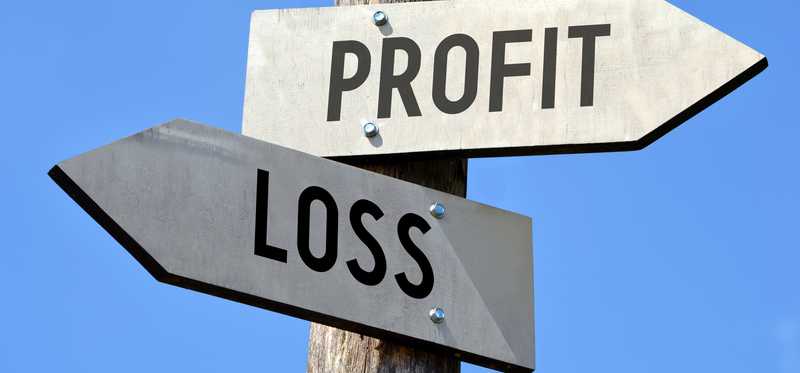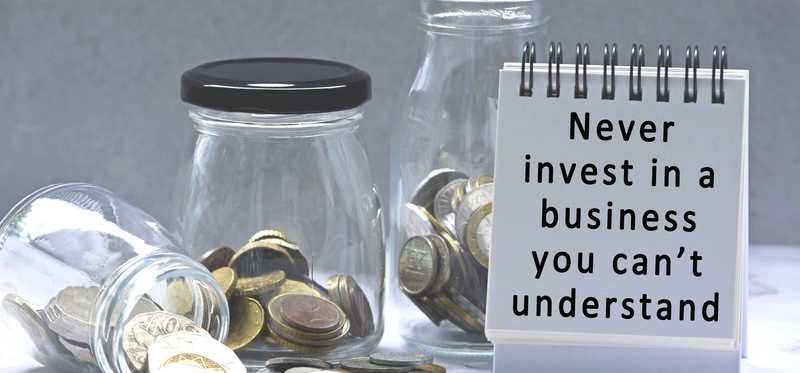Don't Buy a Rental Property if You're Not Ready for These 12 Expenses

Don't Buy a Rental Property if You're Not Ready for These 12 Expenses
A dozen expense categories to keep in mind
Owning rental properties can be a powerful way to generate profits and a great addition to a balanced investment portfolio, but there's more to it than simply buying the place and collecting the rent.
There are up-front and ongoing costs that come with property ownership, and while it's typically considered passive income, that cash flow can take some active oversight during both your time as owner and at the end if you choose to sell.
A good rule of thumb is to expect to pay about half your rental income for taxes, insurance, repairs, maintenance, and other expenses. Here's a look at the big-ticket items to consider before you take the plunge.
5 Stocks Under $49
Presented by Motley Fool Stock Advisor
We hear it over and over from investors, "I wish I had bought Amazon or Netflix when they were first recommended by The Motley Fool. I'd be sitting on a gold mine!" It's true, but we think these 5 other stocks are screaming buys. And you can buy them now for less than $49 a share! Click here to learn how you can grab a copy of "5 Growth Stocks Under $49" for FREE for a limited time only.
Previous
Next

1. Acquisition costs
First, you have to buy the place. Are you financing it? That's the first item to consider -- that monthly payment versus what you can expect in rental income. The difference there is your profit, less the other expenses to come that can add up quickly, as you'll see in the next slide.
Previous
Next

2. Maintenance and repairs
Conventional wisdom says maintenance typically costs about 1% to 4% of the property's value per year. Some quick math: 2% of $500,000 is $10,000. Divide that $10,000 by 12 to get $833.33 per month right off the top. It's easy to see how quickly you can get to half the rent going toward covering all the expenses of being the property owner.
Previous
Next

3. Turnover and vacancy costs
Turnover and vacancy costs will vary depending on your market and property, but calculate as best you can how often you'll be turning over tenants and deduct that time without rent coming in from your expected income.
Good ways to guesstimate include looking at the property's record, if available, and networking with other landlords with similar properties around you.
Previous
Next

4. Property taxes
Property taxes are the responsibility of the owner of the property, and you'll need to include that expense when calculating the rent you'll need to charge to make a profit on your property. Rates are often higher for commercial and non-owner-occupied residential properties.
Previous
Next

5. Landlord insurance
Be sure to include in your budgeting the cost of liability insurance and property and casualty insurance. The type you'll need depends on the type of rental involved: Business or residential and long-term versus short-term -- those are just two factors insurers will consider when they set your rates.
Expect to pay around 25% more than you do for an equivalent owner-occupied homeowners insurance policy.
5 Stocks Under $49
Presented by Motley Fool Stock Advisor
We hear it over and over from investors, "I wish I had bought Amazon or Netflix when they were first recommended by The Motley Fool. I'd be sitting on a gold mine!" It's true, but we think these 5 other stocks are screaming buys. And you can buy them now for less than $49 a share! Click here to learn how you can grab a copy of "5 Growth Stocks Under $49" for FREE for a limited time only.
Previous
Next

6. A certificate of occupancy
A certificate of occupancy is needed in most places before you can legally allow a tenant to move in and can be required for both new construction and existing properties, including when they change hands.
Expect a visit from government inspectors to ensure compliance with building and zoning codes. Fees vary based on the jurisdiction and size of the property.
Previous
Next

7. Business permits and licenses
Your city or county may require a housing business license, in some cases, one for each rental unit. Office and retail rental spaces also typically require a business license or permit. Be sure to check with your local jurisdiction for the rules and costs.
Also, expect these licenses and permits to be recurring and to have to pay the fee each time one is up for renewal.
Previous
Next

8. Paying for the power
Whether you factor it into the rent or pay it yourself, you need to be aware of the costs of heating and cooling your property.
Ask the provider -- or providers if there's one for electricity and one for gas -- what the records show for average use at the property. Then decide whether you're paying it and including it in the rent or leaving that to the tenant.
Previous
Next

9. Water, sewer, recycling, and all that trash
In some jurisdictions, water is provided by one entity and sewer by another. In others, by one and the same. Same with trash and recycling. Check with the providers for the property's billing history, as rates for residential rental and commercial properties can vary.
There could also be times you might have to pay extra to a private operator to haul away things larger than the regular service will handle. Limbs from storm damage are but one example. Stuff left behind by former tenants is another.
Previous
Next

10. Property management fees
You may decide to have someone else do the work of managing the property, including collecting the rent, but it'll cost you, typically 8% to 12% of the monthly rent for a single-family home. They also often handle maintenance, passing those expenses on to you as well, and include marketing the property as part of their services.
5 Stocks Under $49
Presented by Motley Fool Stock Advisor
We hear it over and over from investors, "I wish I had bought Amazon or Netflix when they were first recommended by The Motley Fool. I'd be sitting on a gold mine!" It's true, but we think these 5 other stocks are screaming buys. And you can buy them now for less than $49 a share! Click here to learn how you can grab a copy of "5 Growth Stocks Under $49" for FREE for a limited time only.
Previous
Next

11. Tenant screening costs
Whether you do it yourself or use a broker or other professional, expect some expenses when it comes to screening potential tenants. For do-it-yourselfers, the Fair Credit Reporting Act allows you to check applicants' credit -- with their consent -- and you can probably expect to pay $25 to $75 each time.
ALSO READ: What is Rent-to-Income Ratio and Why Should Landlords Care?
Previous
Next

12. Capital gains
When the time comes to sell, hopefully, it'll be for more than you paid in the first place. The difference, of course, is subject to the capital gains tax, which can be as high as 20%, depending on your income.
There are ways to offset that, including putting the profits into tax-advantaged real estate deals, like 1031 exchanges and qualified opportunity zone funds, or simply balancing profits with losses, if you have any of those. But that's all a topic for another discussion.
Previous
Next

More profit, fewer pitfalls for proprietors with eyes wide open
Owning rental property can provide plenty of profit but also pitfalls. The latter can give way to more of the former if you go in with your eyes open about your initial expenses and what to expect throughout the lifetime of the investment.
The Motley Fool has a disclosure policy.
Previous
Next
Invest Smarter with The Motley Fool
Join Over Half a Million Premium Members Receiving…
- New Stock Picks Each Month
- Detailed Analysis of Companies
- Model Portfolios
- Live Streaming During Market Hours
- And Much More
READ MORE
HOW THE MOTLEY FOOL CAN HELP YOU
-
Premium Investing Guidance
Market beating stocks from our award-winning service
-
The Daily Upside Newsletter
Investment news and high-quality insights delivered straight to your inbox
-
Get Started Investing
You can do it. Successful investing in just a few steps
-
Win at Retirement
Secrets and strategies for the post-work life you want.
-
Find a Broker
Find the right brokerage account for you.
-
Listen to our Podcasts
Hear our experts take on stocks, the market, and how to invest.
Premium Investing Services
Invest better with The Motley Fool. Get stock recommendations, portfolio guidance, and more from The Motley Fool's premium services.